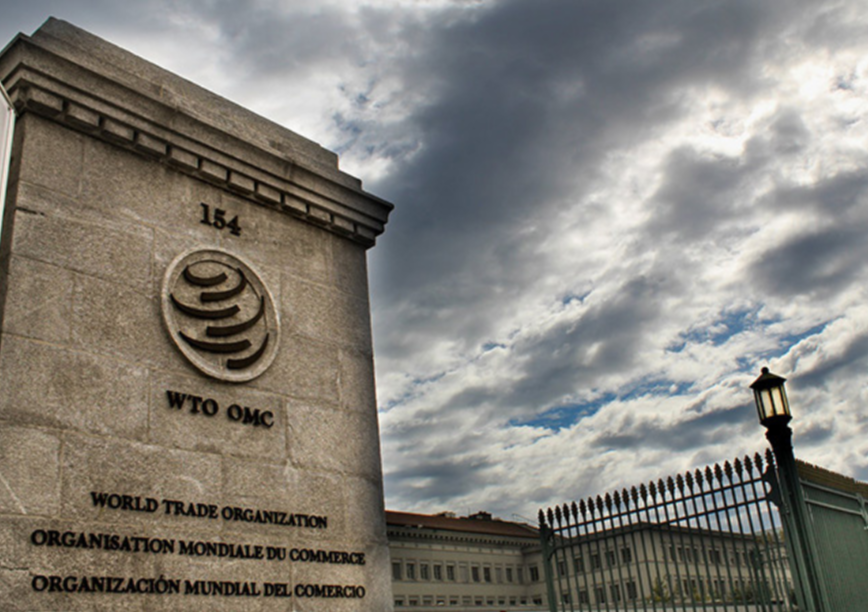-
CENTRES
Progammes & Centres
Location

6 July 2023 was an important day for the World Trade Organisation as it hailed the conclusion of negotiations of the so-called ‘Investment Facilitation for Development’ (IFD) Agreement by the participating members after three years of discussion. The usual adjectives—‘momentous achievement; ground-breaking; new turning point’—all rightly apply.
In the euphoria surrounding even the hint of consensus—a claim the IFD can safely make with —110 participating members—the WTO and the supporters of the system have inadvertently overturned it. This is because the negotiations have not just happened outside of standard procedure, but also without key players, like the United States (US), Vietnam, Thailand, South Africa, and India, participating in the negotiations.
Defenders of the agreement will point out that there was no barrier to any of these members participating in the negotiations. There is too much at stake in these agreements for such key influencers in global trade to be missing altogether from the next generation of trade negotiations. What is stopping them? Where are the fault lines? Should India be actively working with these other partners, with similar hesitations, to find common solutions?
Defenders of the agreement will point out that there was no barrier to any of these members participating in the negotiations.
In their desperate aim to keep the needle moving forward, participating members of the various Joint Statement Initiatives (JSIs) have been negotiating future trade rules in Services Domestic Regulation, E-Commerce, Investment Facilitation and other emerging issues. The informal mechanism that was started in 2017 has been bringing together like-minded members to discuss trade rules in new areas of trade that are not part of the official Doha Round mandate. Even if they are a part of the Doha Development Agenda, the form and structure is different as they are affiliated with existing WTO agreements.
However, as they say, the path to hell is paved with good intentions. The JSI has become problematic because they are functioning outside of the Trade Negotiating Committee (TNCs) and therefore institutional mechanisms that all WTO members have agreed to. While the JSIs are attempting in their own way to create a discourse on pressing and important trade concerns, the fact that these conversations are happening outside of the institutional framework available to the WTO robs them of any legitimacy. Moreover, there is little value to institutions if they do not follow their own rules because the more powerful members don’t like the way things are going. It smacks of hypocrisy and bull dozing.
The informal mechanism that was started in 2017 has been bringing together like-minded members to discuss trade rules in new areas of trade that are not part of the official Doha Round mandate.
This is a problem that India has continuously highlighted when it flags its problem with the JSI set up. However, this points to an urgent need for the country to galvanise similar-minded partners to actively discuss these trade issues or risk JSIs becoming the norm.
Figure 1: WTO Organogram
As we can see from Figure 1, there is precedent for plurilateral negotiations at the WTO. However, each of these plurilateral agreements were based on a consensus-based work programme. The JSIs do not fall into this category making them little more than a wish list of what could be.
The JSIs lack legitimacy purely because they have not been added to the formal negotiation round of the Doha Round. While there is general consensus that Doha is Dead, no serious attempts have been made to reform the WTO system of negotiations. By ignoring due process, they have discredited the very system they were attempting to preserve.
Even more disconcerting is the push for agreement on new issues without due attention given to the arguably more pressing issue of WTO reform. If the system is not functioning with efficiency, and alternatives to the negotiation process are being found within the WTO, why can the same energies not be used to reform the current system?
The question of reform has truly become like waiting for an allegorical salvation that never comes and the wheels are forced to keep turning.
The commitments that are covered in the IFD based on the official factsheet are all ‘best endeavour’ domestic reform requirements. This implies that countries will not have any binding commitments but will, as the term suggests, “do their best” to meet these requirements they are agreeing to. Their non-binding nature might be an attempt to ensure that there is consensus amongst the diverse members that make up these groups.
Even more disconcerting is the push for agreement on new issues without due attention given to the arguably more pressing issue of WTO reform.
It actively excludes “market access, investment protection, and investor-State dispute settlement (ISDS)”. While one may question whether these issues should be discussed at a multilateral level at all, the need for an IFD type agreement that excludes these issues begs explanation. A similar issue is seen in the concluded Joint Statement Agreement on Services Domestic Regulation (SDR). While the rules contained in the SDR reference paper are important, the members have an out with a clause in the very first section (point 5), which effectively makes the document non-binding.
While the actual text of the agreement is still restricted, another issue, specific to the ISD is noticeable from the public fact sheet. The fact sheet itself makes it clear that nothing that will lead to actual trade liberalisation has been included. Whether the issues of transparency and Special and Differential Treatment go further than the Agreement on Trade Related Investment Measures (TRIMS) in any significant manner remains to be seen. This might be unlikely given the TRIMS agreement was about ensuring that trade restrictive investment policies are not adopted when it comes to trade in goods. The IFD seems more ambiguous on this with the aim being global benchmarking of rules and ensuring capacity building in Least Developed Countries (LDCs).
There are various other mechanisms within the WTO that can be used for both these purposes. The question arises that if the IFD is not pushing the envelope far enough, where is the need to circumvent standard procedures to push through an agreement?
In the final analysis, the ever-present question is, despite the lack of institutional justification, are JSIs and other unofficial modes of negotiation the only future for the WTO?
The IFD seems more ambiguous on this with the aim being global benchmarking of rules and ensuring capacity building in Least Developed Countries (LDCs).
Without serious reform attempts, this would appear to be the case in the short term. If we are to take this as the new normal, India faces a very real question of principle versus priority. Is it possible to keep faith in the system and hope for course correction or is it time we bite the bullet to ensure we don’t lose our seat and voice at the table?
All these questions will likely be answered at the thirteenth Ministerial Conference (MC13) next year. India and its like-minded partners should make conscious plans to table reform proposals to salvage the WTO system or we have no choice but to adjust to the new system.
Jhanvi Tripathi is Associate Fellow with the Geoeconomics Studies programme at the Observer Research Foundation
The views expressed above belong to the author(s). ORF research and analyses now available on Telegram! Click here to access our curated content — blogs, longforms and interviews.

Jhanvi Tripathi is an Associate Fellow with the Observer Research Foundation’s (ORF) Geoeconomics Programme. She served as the coordinator for the Think20 India secretariat during ...
Read More +